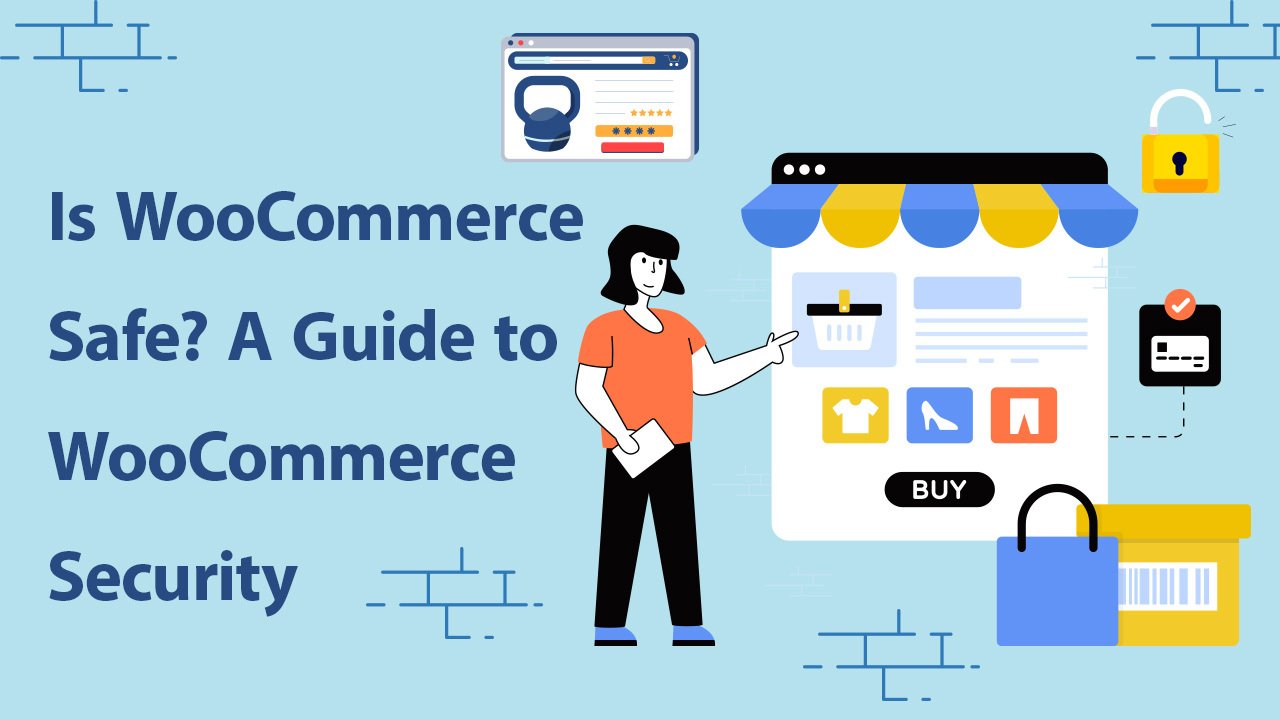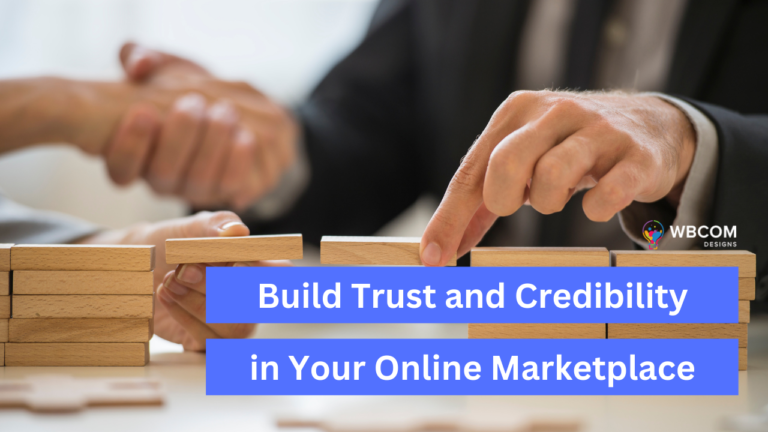WooCommerce is one of the most popular and powerful ecommerce platforms in the world. It allows you to create and manage your own online store with ease and flexibility. However, running an online store also comes with some risks and challenges, especially when it comes to security.
Security is incredibly important for any website, but especially for ecommerce stores. You need to protect your hard work, your customer information, your brand reputation, and your search engine rankings from hackers and malware. A security breach can cause serious damage to your business and your customers, and it can be costly and time-consuming to recover from.
So, is WooCommerce safe? How can you ensure the security of your WooCommerce store? In this blog post, we will answer these questions and share with you some of the best WooCommerce security tips that you can implement today to protect your online store and your customers.
Also Read: 10 Best AI Time Management Tools Of 2023
Table of Contents
ToggleIs WooCommerce Safe by Itself?

WooCommerce is built to offer a convenient and secure platform for ecommerce websites. It follows the best coding practices and standards, and it receives regular updates and patches to fix any vulnerabilities or bugs. It also integrates with many reputable and secure payment gateways that handle customer payment information safely and securely.
Therefore, WooCommerce is safe by itself. However, it does not protect you against external security threats such as hacks or brute force attacks. In order to secure your WooCommerce site from these threats, you need to take additional measures to harden your site security and prevent any unauthorized access or data breaches.
Also Read: 10 Best AI Code Generators Of 2023
How to Secure Your WooCommerce Store?
WooCommerce security depends on several factors, such as your hosting provider, WordPress core, plugins, themes, SSL certificates, backups, and updates. You need to ensure that all these elements are secure and up-to-date to avoid any security issues.
Here are some of the best WooCommerce security tips that you can follow to keep your online store safe:
1. Choose a Secure Hosting Provider
Your hosting provider is the foundation of your site security. It stores your website content, WordPress core files, and database, which allows them to be viewed by people all over the world. It also handles the traffic and requests that come to your site.
Therefore, you need to choose a secure hosting provider that offers features like:
- SSL certificates, which protect customer data such as addresses and phone numbers
- Firewall, which blocks malicious traffic and requests
- Malware scanning, which detects and removes any malware or viruses on your site
- Backups, which allow you to restore your site in case of a disaster or a hack
- WordPress-specific security measures, such as WordPress hardening, automatic updates, etc.
You should also look for a hosting provider that understands WordPress and WooCommerce security well and clearly states what they do to prioritize your store’s safety.
Also Read: 8 Virtual Event Ideas for Online Communities
2. Keep Your WordPress Core, Plugins, and Themes Updated
One of the most common causes of security breaches is outdated software. Hackers often exploit known vulnerabilities in older versions of WordPress core, plugins, or themes to gain access to your site or inject malicious code.
Therefore, you should always keep your WordPress core, plugins, and themes updated to the latest versions. This will ensure that you have the latest features, bug fixes, and security patches on your site.
You can check for updates on your WordPress dashboard or use a plugin like Easy Updates Manager to manage them automatically. You should also delete any unused or inactive plugins or themes to reduce the risk of attacks.
3. Use Strong Passwords and Limit Login Attempts
Another common way hackers try to access your site is by guessing or cracking your passwords. They use automated tools or bots to try different combinations of usernames and passwords until they find the right one.
To prevent this, you should use strong passwords that are hard to guess or crack. You should also change them regularly and use different passwords for different accounts.
You can use a password manager like LastPass or 1Password to generate and store strong passwords for you. You can also use two-factor authentication (2FA) to add an extra layer of security to your login process.
Another way to protect your login page is by limiting the number of login attempts allowed per user or IP address. This will stop brute force attacks by locking out anyone who tries too many times.
You can use a plugin like Limit Login Attempts Reloaded or Loginizer Security to set up this feature on your site.
Also Read: 10 Best AI UX Tools Of 2023
4. Use an SSL Certificate
An SSL certificate is a certificate that verifies the identity and safety of a particular website. It also encrypts the data transferred between your site and your customers, such as personal and payment information.
This prevents hackers from intercepting or stealing the data, and it also boosts your SEO ranking and customer trust.
You can get an SSL certificate from your hosting provider or a third-party service like Let’s Encrypt. You can also use a plugin like Really Simple SSL to enable SSL on your site with one click.
5. Backup Your Site Regularly
Even if you follow all the WooCommerce security tips, there is still a chance that something might go wrong and your site might get hacked or corrupted. In that case, you need to have a backup of your site that you can use to restore it to a previous state.
A backup is a copy of your site’s files and database that you can store in a safe location, such as your local computer, cloud storage, or external drive. You should back up your site regularly and before making any major changes to it.
You can use a plugin like UpdraftPlus or BackupBuddy to back up your site automatically and easily. You can also use a service like BlogVault or Jetpack Backup to back up your site remotely and securely.
Also Read: Is SEO relevant in 2023?
6. Use a Security Plugin
One of the easiest and most effective ways to secure your WooCommerce store is by using a security plugin. A security plugin can scan your site for any malware or vulnerabilities, clean it up if infected, and protect it from future attacks.
A security plugin can also offer features like:
- Firewall, which blocks malicious traffic and requests
- Login protection, which limits login attempts and enables 2FA
- IP blocking, which bans suspicious or unwanted IP addresses
- File change detection, which alerts you of any unauthorized changes to your files
- Security audit, which monitors and logs all the activities on your site
There are many security plugins available for WordPress and WooCommerce, but some of the best ones are:
- MalCare, which offers comprehensive and proactive security for WooCommerce sites
- Wordfence, which offers firewall and malware scanning for WordPress sites
- Sucuri, which offers firewall and CDN services for WordPress sites
- iThemes Security, which offers various security features and settings for WordPress sites
Conclusion
WooCommerce is a safe and secure platform for eCommerce websites, but it requires some additional measures to protect it from external threats. By following the WooCommerce security tips we shared in this blog post, you can ensure the safety of your online store and your customers.
We hope this blog post helped you understand how to secure your WooCommerce store. If you have any questions or feedback, please let us know in the comments below.😊
Interesting Reads:
WC Vendors- The Best Multi Vendor plugin for Market Place
Launch Your eCommerce Marketplace in a Few Steps: A Comprehensive Guide
WP Forms vs Gravity Forms: Best Contact Forms Plugins on WordPress






